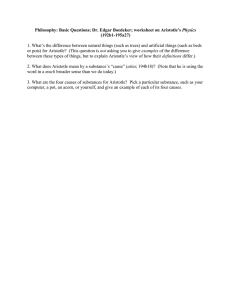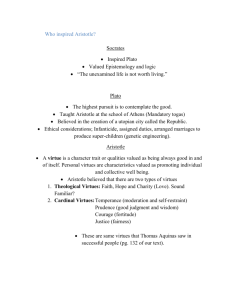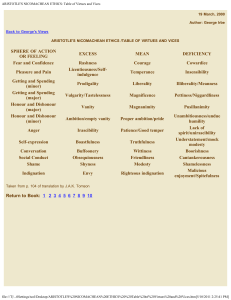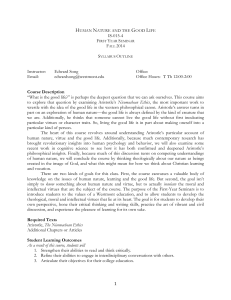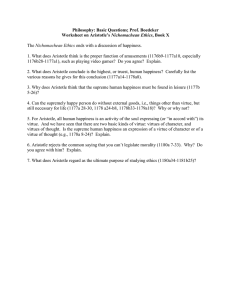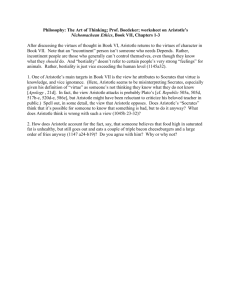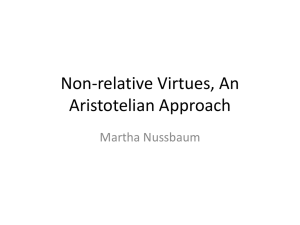Aristotle`s Nicomachean Ethics Study Questions
advertisement
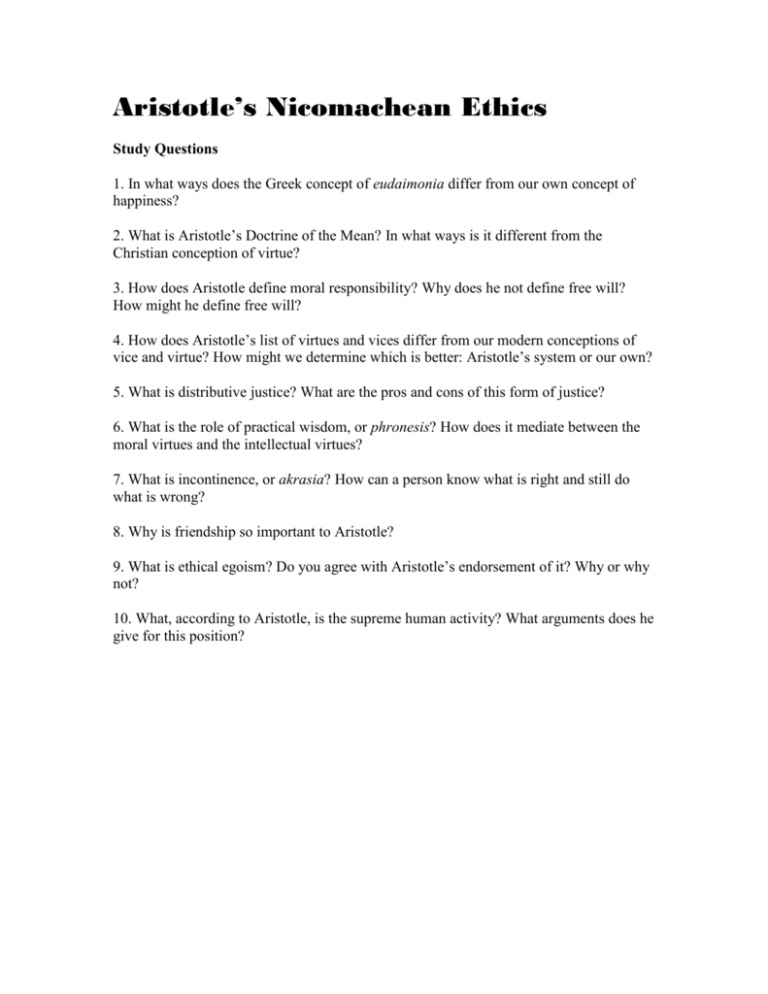
Aristotle’s Nicomachean Ethics Study Questions 1. In what ways does the Greek concept of eudaimonia differ from our own concept of happiness? 2. What is Aristotle’s Doctrine of the Mean? In what ways is it different from the Christian conception of virtue? 3. How does Aristotle define moral responsibility? Why does he not define free will? How might he define free will? 4. How does Aristotle’s list of virtues and vices differ from our modern conceptions of vice and virtue? How might we determine which is better: Aristotle’s system or our own? 5. What is distributive justice? What are the pros and cons of this form of justice? 6. What is the role of practical wisdom, or phronesis? How does it mediate between the moral virtues and the intellectual virtues? 7. What is incontinence, or akrasia? How can a person know what is right and still do what is wrong? 8. Why is friendship so important to Aristotle? 9. What is ethical egoism? Do you agree with Aristotle’s endorsement of it? Why or why not? 10. What, according to Aristotle, is the supreme human activity? What arguments does he give for this position?
